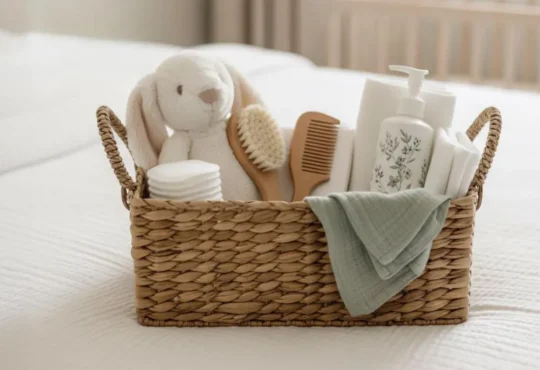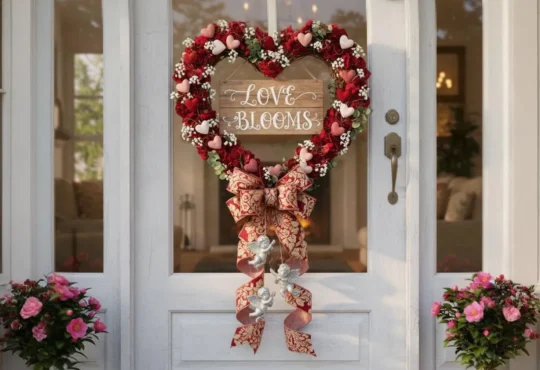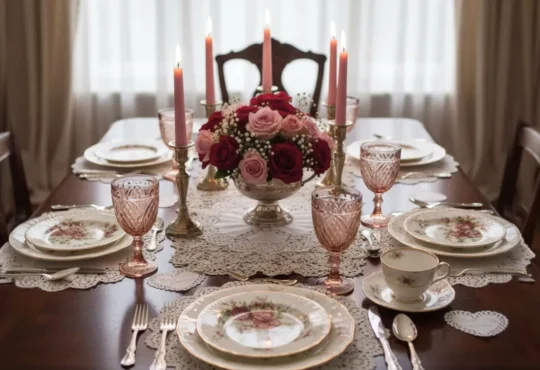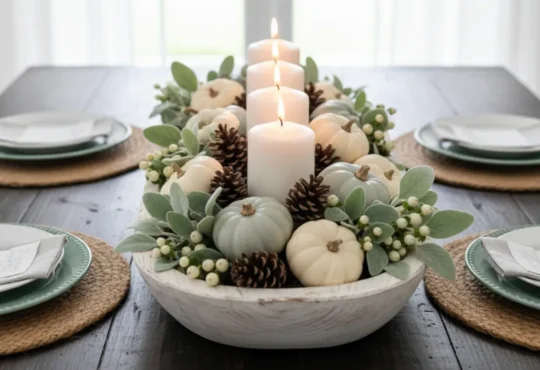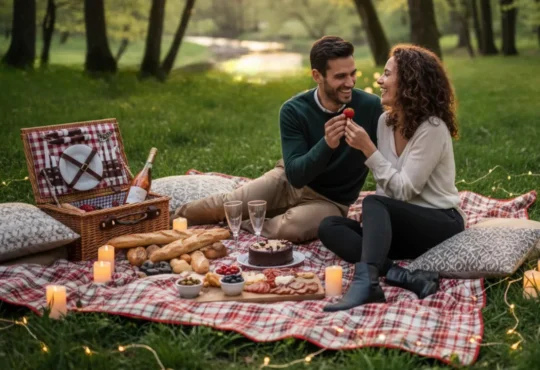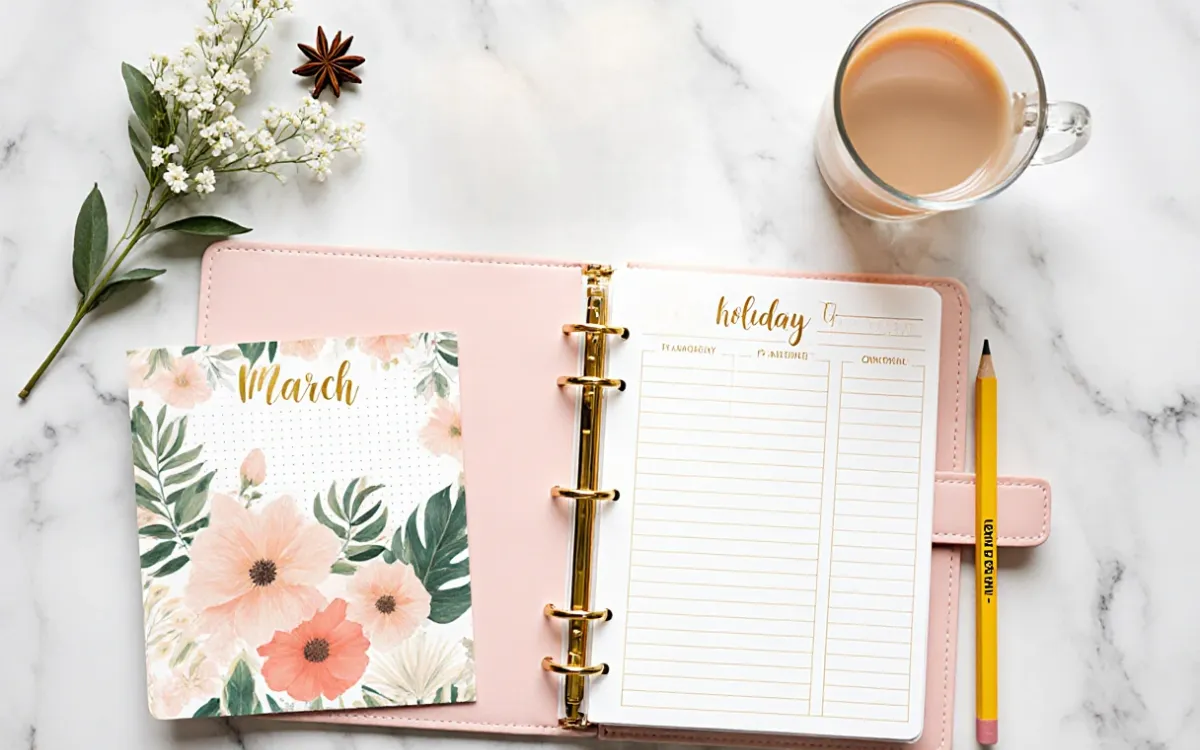
Holidays are magical moments—opportunities to rest, connect with loved ones, and create memories that last a lifetime. Yet, for many, the excitement of an upcoming holiday can be overshadowed by the stress of planning. From packing and travel arrangements to budgeting and gift shopping, there are countless details to manage. The good news? With thoughtful preparation and a little creativity, holiday planning can be a joyful experience rather than a stressful one. Here are 21 practical and inspiring tips to help beginners stay organized and make the most of every holiday season.
1. Start Early
Starting your holiday planning early not only helps you secure the best deals on travel and accommodations but also gives you the mental space to design meaningful experiences. By spreading tasks over several weeks, you can make thoughtful decisions, avoid rushed purchases, and create a truly stress-free holiday. This approach ensures both your budget and your peace of mind stay intact.
2. Set a Budget
Setting a clear holiday budget helps you enjoy the season without financial stress. Break down expenses into categories like travel, accommodations, meals, gifts, and activities, and track them using a simple app or spreadsheet. By planning realistically, you can prioritize what truly matters, make smarter choices, and create memorable experiences without overspending.
3. Make a Checklist
Creating a comprehensive checklist is a game-changer for stress-free holiday planning. List every task—from booking flights and accommodations to packing, shopping, and scheduling activities—and organize them by priority and deadline. This approach ensures nothing is overlooked, keeps you focused, and allows you to enjoy the holiday with confidence and ease.
4. Prioritize Your Plans
Prioritizing your holiday plans helps you focus on what truly matters and prevents feeling overwhelmed. Decide which experiences—like spending quality time with loved ones, exploring new destinations, or simply relaxing—are most important, and allocate your time and resources accordingly. This ensures a balanced, fulfilling holiday that matches your personal goals and brings lasting memories.
5. Research Destinations
Thoroughly researching your holiday destinations allows you to tailor your trip to your interests and needs. Consider factors like local culture, seasonal weather, popular attractions, and hidden gems to create a well-rounded experience. This preparation ensures you make informed choices, avoid surprises, and enjoy a holiday that truly aligns with your preferences and lifestyle.
6. Organize Travel Documents
Organizing your travel documents early not only prevents last-minute chaos but also gives you confidence throughout your journey. Use a dedicated travel folder or secure app to store passports, tickets, insurance, and itineraries, and create digital backups in the cloud. This way, even unexpected delays or lost documents won’t disrupt your plans, keeping your holiday stress-free and enjoyable.
7. Plan Your Travel Route
Planning your travel route in advance ensures a smoother, more efficient journey. Whether driving, flying, or combining different modes of transport, mapping out stops, connections, and estimated travel times helps you avoid delays and unexpected detours. This preparation allows you to focus on enjoying the holiday rather than stressing over logistics, making your trip more relaxed and enjoyable.
8. Book Accommodations Early
Booking accommodations early not only guarantees the best rates but also gives you a wider selection of quality options. Research reviews, amenities, and location to ensure your stay is comfortable, convenient, and aligned with your holiday goals. Early booking reduces stress, allows for thoughtful choices, and sets the foundation for a seamless, enjoyable trip.
9. Pack Smartly
Packing smartly transforms holiday preparation from stressful to efficient. Create a detailed list, roll clothes to maximize luggage space, and group essentials like chargers, medications, and toiletries in easily accessible pouches. Planning ahead minimizes forgotten items, keeps your luggage organized, and lets you start your holiday relaxed and ready to enjoy every moment.
10. Create a Holiday Calendar
Creating a holiday calendar helps you visualize your entire season at a glance. Mark key dates like travel days, special events, and gift-buying deadlines, and consider color-coding tasks for clarity. This approach keeps you organized, reduces last-minute stress, and ensures you make time for the experiences that matter most during the holidays.
11. Delegate Tasks
Delegating tasks during the holidays not only eases your workload but also fosters teamwork and shared enjoyment. Assign responsibilities like meal prep, gift shopping, or decorating to family members or friends, matching tasks to their strengths. This approach ensures everything gets done efficiently while creating a sense of togetherness and shared accomplishment.
12. Set Reminders
Setting reminders is a simple yet powerful way to stay on top of holiday plans. Use phone alarms or apps to track booking deadlines, travel check-ins, and gift-giving occasions, ensuring nothing is forgotten. This proactive approach reduces stress, keeps your schedule organized, and allows you to focus on enjoying the holiday rather than chasing tasks at the last minute.
13. Focus on Experiences
Focusing on experiences transforms your holiday from a checklist into lasting memories. Prioritize activities that bring joy, relaxation, or connection, rather than cramming your schedule with obligations. By designing your holiday around meaningful moments, you create a more fulfilling and memorable experience that resonates long after the season ends.
14. Prepare Meals in Advance
Preparing meals in advance can turn holiday gatherings into relaxing, enjoyable experiences. Chop, marinate, or partially cook ingredients ahead of time, and consider freezing or refrigerating dishes when possible. This approach not only saves time on busy days but also allows you to focus on spending quality moments with family and friends instead of rushing in the kitchen.
15. Keep a Holiday Journal
Keeping a holiday journal is a valuable way to capture both your plans and your memories. Jot down ideas, inspirations, and important details like gift lists, itineraries, or special moments, and revisit them later to reflect on your experiences. This practice not only helps with organized planning but also creates a lasting keepsake full of sentimental value and inspiration for future holidays.
16. Stay Flexible
Staying flexible is key to enjoying a stress-free holiday. Even the most carefully planned itinerary can face unexpected changes, from weather delays to last-minute opportunities. By embracing spontaneity and adapting when needed, you can turn potential disruptions into memorable experiences and maintain a relaxed, positive mindset throughout your holiday.
17. Use Online Tools
Using online tools can transform holiday planning into a smooth, efficient process. Travel apps help track flights and accommodations, budgeting tools keep expenses in check, and shopping platforms simplify gift purchases. Leveraging these digital resources saves time, reduces errors, and allows you to focus on enjoying the holiday rather than managing logistics.
18. Limit Distractions
Limiting distractions helps you stay focused and productive during holiday preparations. Set aside dedicated blocks of time for tasks like shopping, packing, or planning activities, and minimize interruptions from social media or non-essential chores. This intentional approach reduces overwhelm, keeps your progress on track, and allows you to enjoy a calmer, more organized holiday season.
19. Shop Early
Shopping early not only helps you avoid last-minute stress but also ensures you have time to choose thoughtful, meaningful gifts. Plan your purchases ahead, compare prices, and explore unique options without the pressure of deadlines. Early shopping allows for better budgeting, smarter decisions, and a more relaxed, enjoyable holiday experience.
20. Pack a Comfort Kit
Packing a comfort kit can make travel days far more enjoyable and stress-free. Include snacks, water, entertainment like books or headphones, and essentials such as medications, chargers, and a travel pillow. Having these items on hand keeps you comfortable, reduces travel fatigue, and allows you to start your holiday feeling refreshed and ready for adventure.
21. Reflect and Enjoy
Take time to appreciate the holiday itself. Planning is important, but the memories you create matter even more.
Conclusion
Holidays should be a time of joy, connection, and rejuvenation. By planning thoughtfully, staying organized, and keeping a flexible mindset, even beginners can enjoy a smooth and memorable holiday experience. Remember, the goal isn’t perfection—it’s creating meaningful moments with the people you care about. With these 21 tips, your next holiday will be less about stress and more about delight. Start early, plan smart, and embrace the magic of the season.
Here are some frequently asked questions related to the article :
1. How far in advance should I start planning a holiday?
Start at least 2–3 months ahead for domestic trips and 4–6 months for international holidays to secure the best deals and avoid stress.
2. What’s the best way to stick to a holiday budget?
Track all expenses in a dedicated notebook or app. Prioritize spending on experiences that matter most to you.
3. How can I involve family in holiday planning?
Assign specific roles, like meal prep, packing, or activity planning, and hold brief planning meetings to ensure everyone contributes.
4. How do I stay organized during travel?
Use folders for documents, packing lists, and digital reminders. Keep essentials within easy reach to minimize last-minute searching.
5. Should I plan every day of the holiday?
No. Leave room for spontaneity. Prioritize key activities but allow downtime to relax and enjoy the moment.
6. How can I reduce holiday stress?
Start early, delegate tasks, stick to your budget, and maintain realistic expectations. Mindfulness and flexibility are crucial.
7. Are online tools really helpful for holiday planning?
Yes! Travel apps, budgeting software, and digital checklists streamline organization and reduce mistakes.
See More Holidays & Occasions Ideas Ideas
The princess home on Pinterest


